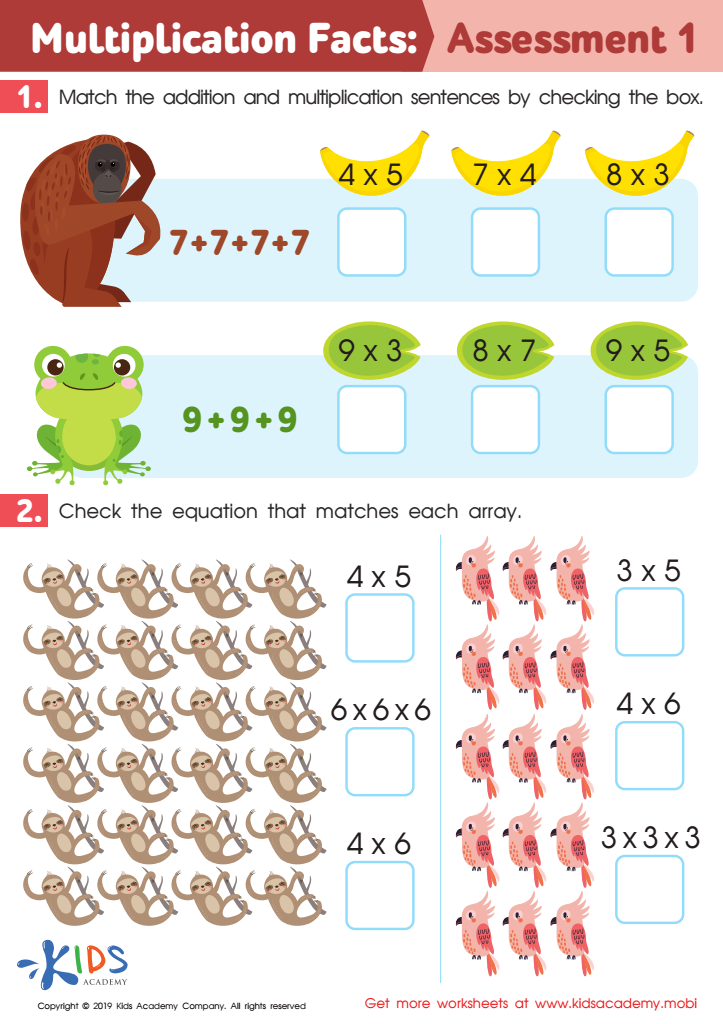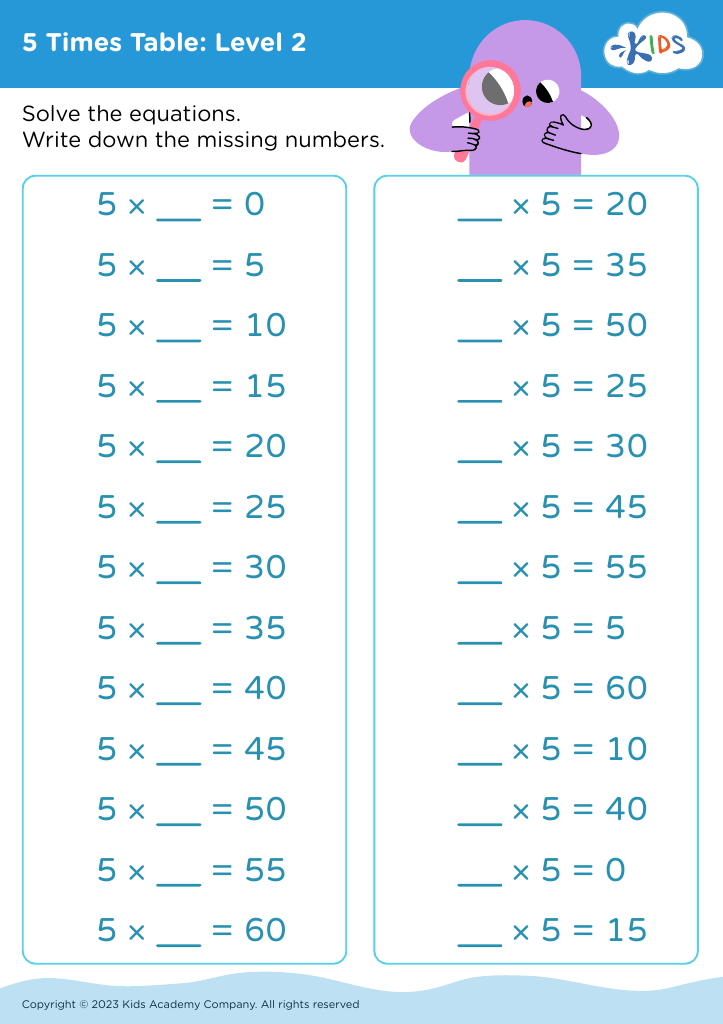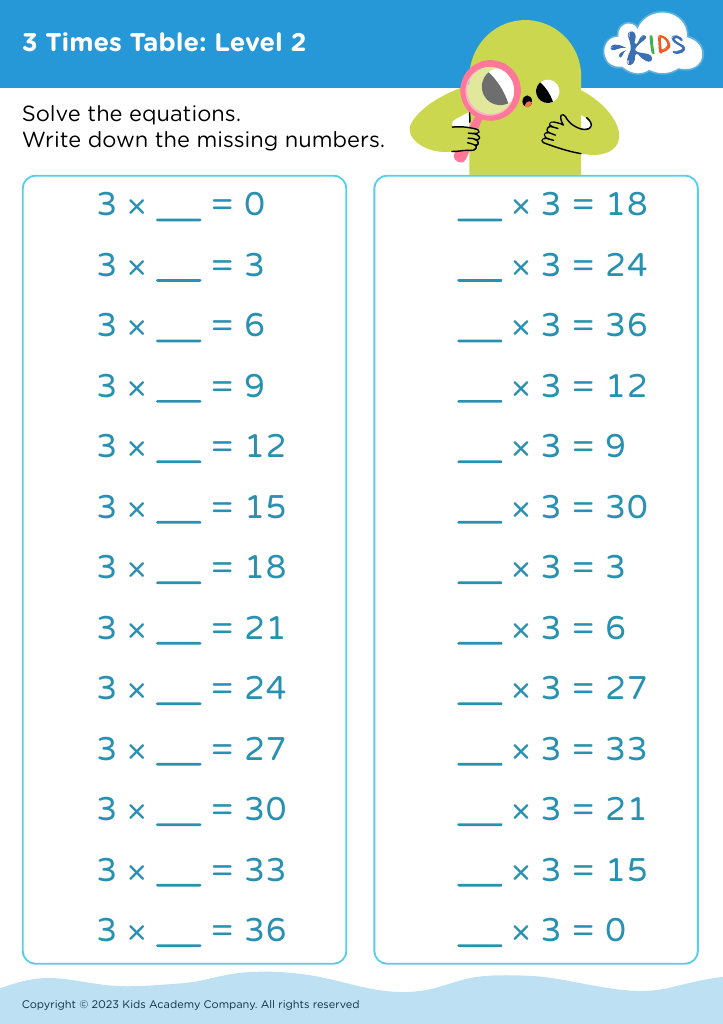Mental arithmetic skills Normal Worksheets for Ages 7-8
3 filtered results
-
From - To
Unlock the power of numbers with our "Mental Arithmetic Skills Normal Worksheets for Ages 7-8." Tailored to young learners, these engaging worksheets are expertly designed to reinforce core arithmetic skills essential for academic success. Through a variety of fun and interactive exercises, children will strengthen their abilities in addition, subtraction, multiplication, and division, all while boosting their confidence and problem-solving skills. Perfect for classroom use or at-home practice, these worksheets provide young minds the foundation they need to excel in math, all while fostering an enjoyable learning experience. Start your child's journey to math mastery today!


Multiplication Facts: Assessment 1 Worksheet
Parents and teachers should prioritize mental arithmetic skills for children aged 7-8 because it forms a fundamental aspect of their cognitive development and overall mathematical proficiency. At this age, children's brains are highly receptive to learning new concepts, making it an ideal time to develop these skills.
Firstly, mental arithmetic enhances a child's problem-solving abilities. Quick mental calculations encourage students to think strategically and improve their ability to manage more complex mathematical operations in the future. By practicing mental math, children learn to break down bigger problems into smaller, more manageable parts.
Secondly, mastering mental arithmetic can boost a child's confidence in mathematics. When students feel competent in performing calculations mentally, they are more likely to engage with other areas of math and develop a positive attitude towards the subject. This confidence can extend into other academic areas and foster a lifelong love of learning.
Finally, mental arithmetic skills are practical for everyday life. From making change to estimating time or distances, children with well-developed mental calculation abilities can perform daily tasks with ease and accuracy. In essence, mental arithmetic is not just an academic tool but a life skill essential for thriving in various real-world situations. Thus, encouraging the development of these skills at an early age sets the foundation for future academic success and practical capabilities.
 Assign to My Students
Assign to My Students








.jpg)








